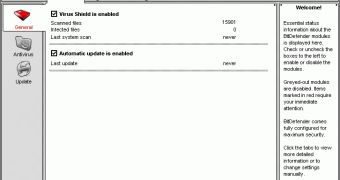If you work in the military and think your email is safe, think again. A rather large scheme has been recently detected by security researchers at the Romanian company BitDefender. The company's head of AV Research, Sorin Dudea, has declared "It's not every day that you stumble on the workings of an honest-to-God hacking ring, let alone one that has a predilection for using military and university-run mail servers as spam relays."
The new Trojan has been discovered when researchers found a spam email that claimed to contain links to videos. Whenever a user tries to click one of these links, he is prompted to download some sort of "media player" capable of rendering the specific videos. Downloading the application will result in your computer being infected with Backdoor.Edunet.A trojan. This malware is said to use the computers of its victims as a way to send commands to a number of mail servers.
The malware application was specifically designed to send commands to various servers, in hope of finding an open relay. This way, every mail sent by the Trojan application will look like it has been sent from the open relay.
The scheme doesn't seem to be all that complex, as users should be aware that most videos use local software applications or are rendered by the webpage's built-in player. The interesting thing is that the spam servers featured in the Trojan's list are mostly from .edu and .mil domains. The fellows at BitDefender haven't succeeded in finding out what is the connection between the targeted servers.
After discovering the Trojan, the researchers at BitDefender concluded that, at the moment, none of the servers included in the target list are vulnerable.
BitDefender is a company that specializes in antivirus software and data security solutions. Their products are among the most awarded antivirus software worldwide. You can download a trial version of the company's latest Antivirus right here at Softpedia, using this link.

 14 DAY TRIAL //
14 DAY TRIAL //